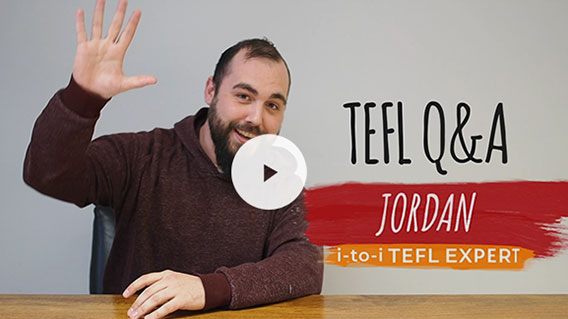What is TEFL?
- TEFL stands for Teaching English as a Foreign Language
- TEFL refers to teaching English in countries where English is not the official first language
- You can teach English online from home or pretty much any country in the world

What is TEFL?
TEFL stands for Teaching English as a Foreign Language. In other words, teaching English to people who are not native English speakers. You may also come across the terms TESOL, which stands for Teaching English to Speakers of Other Languages and TESL, which is Teaching English as a Second Language.
What is the difference between TEFL, TESL and TESOL?
Strictly speaking, TEFL refers to teaching English in countries where English is not the official first language, whereas TESL refers to the teaching of English in countries where English is the official first language, such as the UK, USA, Canada, Australia and New Zealand. TESOL is sometimes used interchangeably with TESL but, technically, covers both terms.
In practice, the terms TEFL, TESOL and (to a lesser extent) TESL tend to be used interchangeably to refer to the whole area of English language teaching.
What do TEFL teachers do?
TEFL teachers do pretty much what their title suggests: they teach English language.
Teaching involves creating lesson plans, structuring sessions to keep students’ attention, laying out a room to help manage a class, using different techniques to engage with students of varying ages, abilities and learning styles. Not to mention knowing what your students need to learn and having the confidence (and the extra activities up your sleeve) to stand in front of a class and present it to them.
TEFL teachers initially learn these techniques through a good TEFL training course. New teachers then hone their abilities through practice and delivery, either in a voluntary capacity or by finding paid work.

What do TEFL teachers teach?
Putting aside the obvious point that TEFL teachers teach English, there are six main areas that TEFL teachers will cover: grammar, vocabulary, reading, writing, listening and speaking.
The emphasis, level and type of material used to teach each of these topics will change depending on the class. For example, the focus might be on conversational English, English for specific exams, English for business purposes, beginners English … you get the idea.
Each class will be different and each will have specific aims, which will have been agreed in advance. The role of a TEFL teacher is to create and adapt a lesson that meets the needs of the particular students in the class. Another skill to master through a TEFL course – little chance of getting bored!
Who do TEFL teachers teach?
If you are a TEFL teacher you can pretty much guarantee that your students will not speak English as their first language (the clue is in the “foreign language” part of Teaching English as a Foreign Language – it is clever this naming thing, isn’t it?).
Other than that however, you could be teaching anyone, anywhere – from families planning to emigrate to an English speaking country, to Chinese school children, to Brazilian journalists, to Thai business people, to Vietnamese hotel workers.
Time to head off …
So now you are all clued up and ready to launch into that party conversation. Except don’t you have some bags to pack, so you can start on your own adventure of teaching and travelling your way around the world?

Take our 2-minute teaching online quiz to find out if you're eligible to start earning from home as an online English tutor!
Related FAQs
Additional help

Want to learn more?
For more info on this exciting opportunity, simply pop your details in below and we’ll get in touch very soon!
